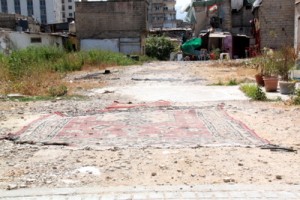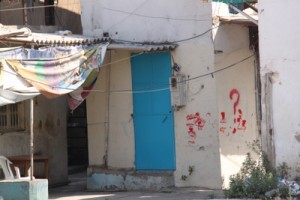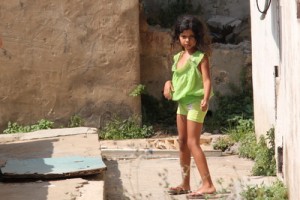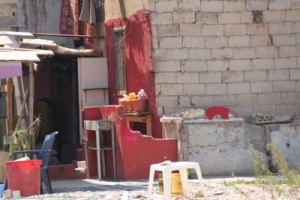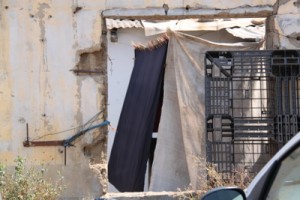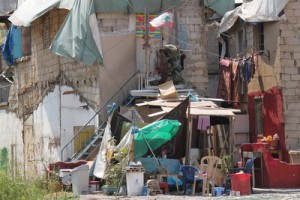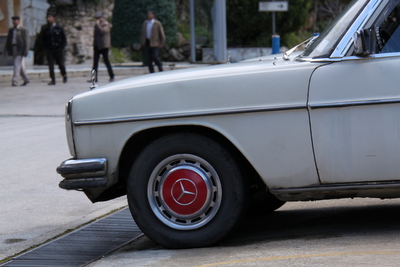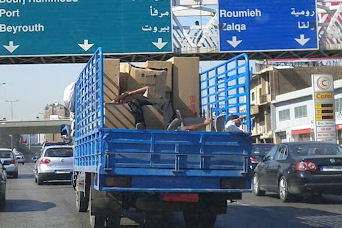These were taken where Borj Hamoud meets the coastal highway just as you leave Beirut heading north. It’s a Christian area. A trail of battered Persian rugs makes for some kind of entrance to the cluster of low buildings, small enough to walk around in a few minutes.
Most are partly destroyed houses, with walls and roofs replaced by aluminium sheets or tarpaulin. Red question marks are painted on the walls. Elsewhere there are black crosses. I don’t know the history of this slum and why or how these people ended up here.
The washing lines are full of kids clothes and there’s a large paddling pool in a clearing which looks like a communal area.
A splash of colour in all the concrete.
The living space of these homes will be drastically reduced when the rains come. Pegged up sheets won’t cut it and few of the roofs look even remotely watertight.
This looks like the main bartering yard for the neighbourhood. In an alley a man and a women were carefully sorting through a plastic bowl of lighters and other small finds from the dump. Necessity is the mother of recycling.
